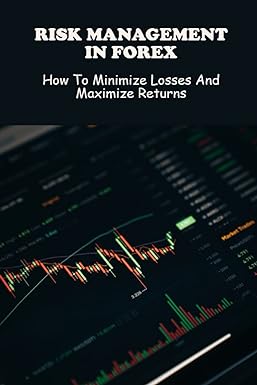Question
make the following answer longer Description: Start-ups are seen as innovative key drivers of economic growth and job creation. Some countries have already introduced measures
make the following answer longer
Description:
Start-ups are seen as innovative key drivers of economic growth and job creation. Some countries have already introduced measures to motivate the investment in start-ups, with a variety of incentives including tax reliefs and holidays. However, this would depend on the various requirements set within these policies including the type of business form.
Required:
Compare any three (3) countries of your choice, highlighting the tax policies and incentives to motivate investment in start ups. The answer should clearly identify the business forms mentioned in the policies and the tax implications.
demonstrate understanding of the various basic legal forms of business organization and the tax policies that are relevant to the current issues, which in this case refers to start ups.
Please refer to the course outline course outcomes:
Demonstrate the understanding on corporate taxable income
Analyze current situation of tax regulations
(1500 words)
Answer:
Country 1: India
Following tax incentives are offered to startups:
- 3 year tax holiday in a block of seven years: Such startups will be eligible for a tax refund of 100 percent on profits for three years in a row if their annual turnover does not exceed Rs 25 crores in any given financial year. This will assist startups in meeting their working capital needs during their early years of service
- Exemption from long-term capital gains: Eligible startups are excluded from paying tax on long-term capital gains if they invest all or part of the gain in a Central Government-approved fund within six months of the asset transfer date.
- Individuals and HUFs are excluded from paying taxes on long-term capital gains invested in equity investments of Eligible Startups (Business form in this particular point if HUF which is unique to India)
- In the event of a transition of shareholding pattern, it is possible to set aside carry forward losses and capital gains (Relevant business form: Company)
Country 2: USA
Following tax incentives are offered to startups:
- Availing R&D Tax Credit: The R&D Tax Credit is a general business tax credit under Section 41 of the Internal Revenue Code for companies who spend money on research and development in the United States (Relevant form of business is a small business with gross receipts of $5 million or less for the tax year)
- State and Local Tax Incentives: Almost every state in the US, as well as many cities, has a kind of startup tax reward scheme. Exemptions from utility rates and property taxes are among the benefits, which vary from R&D tax credits equal to the federal scheme to monetary incentives for job creation.
- Qualifies small business stock: Investors who own QSBS will be able to avoid paying tax on any or all of their income from the sale of their shares if they use the Qualified Small Business Stock clause of section 1202 of the Internal Revenue Code. Unlike any of the other tax credits listed, the QSBS clause does not immediately reduce a startup's tax burden, however, it can compensate entrepreneurs and those who invest.
Country 3: China
Following tax incentives are offered to startups:
- Corporate Income Tax (CIT) Reductions: The introduction of generous cuts in Corporate Income Tax rates is one of the highlights of the recently announced initiatives. CIT is only imposed on 25% of a company's taxable revenue if it does not surpass RMB 1 million, and it is levied at a 20% discounted rate. These corporations' effective corporate income tax rate is essentially limited to just 5%.
- Reduction in VAT: In addition to CIT rate increases, new VAT exemption thresholds have been introduced. For the last decade, VAT restructuring has been a top priority for Beijing. In 2018, the government slashed VAT prices across a wide variety of sectors, saving over RMB 270 billion in just six months.
- Eligible companies and business forms: Relaxed standards are applicable for being qualified as a start-up.
Prior to the regulatory change, new businesses should only have a limit of 200 staff and gross assets and annual revenue of RMB 30 million.
Following the policy change, startup firms will have up to 300 staff, gross assets of up to RMB 50 million, and annual revenue of up to RMB 50 million.
Step by Step Solution
There are 3 Steps involved in it
Step: 1

Get Instant Access to Expert-Tailored Solutions
See step-by-step solutions with expert insights and AI powered tools for academic success
Step: 2

Step: 3

Ace Your Homework with AI
Get the answers you need in no time with our AI-driven, step-by-step assistance
Get Started


